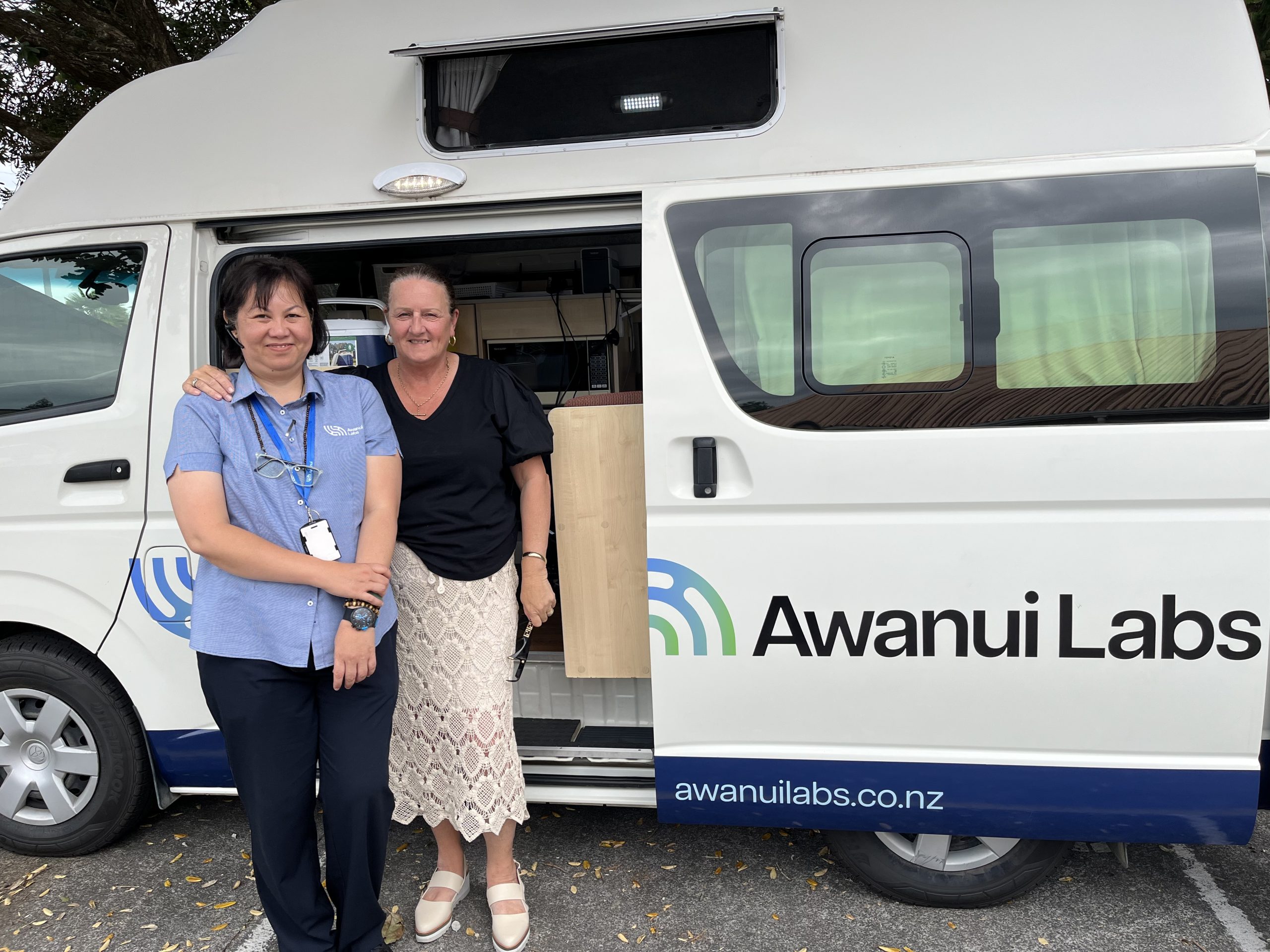As part of Phlebotomy Recognition Week, the Northern Region is proud to introduce Lab on Wheels, a mobile collection service designed to make diagnostic testing more accessible for communities that may find traditional collection centre hours or locations challenging to access.
Led by Area Manager Susan Davis and Team Leader Hazel Imperial, this Innovation Fund-supported pilot brings phlebotomy services to key locations where patients are already going about their daily routines – such as schools, marae, and community hubs.
While our collection centres and mobile phlebotomists already serve many patients, some find it difficult to fit testing into their schedules. Lab on Wheels does not eliminate travel, but it does bring services closer – meeting patients where they already are rather than requiring them to make a special trip.
Susan Davis, who has led the project rollout, explains: “We are not going directly to people’s homes, but we are setting up in places they are already visiting – whether it is dropping kids off at school or attending a community event. The idea is to make blood tests easier to fit into their day.”
The service launched on 3 February, making its first stop outside the busy Botany Collection Centre, where 21 patients were seen on the first day. Early feedback has been overwhelmingly positive, with patients appreciating the convenience and shorter wait times compared to traditional collection centres.
A campervan has been adapted for this purpose, and it is a simple, practical solution that allows trained phlebotomists to collect blood samples efficiently.
Hazel Imperial, who has been closely involved in the operational setup, says “it is a basic setup, but we have everything we need to get the job done. Patients will not have the same experience as they would in a full collection centre, but they can still access a quality service without the hassle of long waits.”
One limitation is the lack of toilet facilities on board, which affects patients needing urine or stool samples. However, to accommodate this, patients can take collection kits home and drop off their samples later.
A key goal of the project is to increase accessibility for Māori communities, who often face greater barriers to healthcare. Susan recently met with iwi leaders to explore how Lab on Wheels can better serve Māori patients.
“The response from iwi has been really positive,” says Susan. “They’re excited about the potential, and we’re waiting to hear back on the best ways to work together.”
The pilot launched at two initial locations, starting with Botany Collection Centre, where it helped manage patient overflow and provided an alternative option for blood collection. The second location, Randwick Park School, was selected to offer parents a convenient opportunity to get tested immediately after dropping their children off at school. Additional locations are being considered as the service evolves, with further expansion driven by the feedback received.
Future sites may include marae, community halls, and additional rural areas where access to testing is currently limited.
This 12-month pilot will be carefully evaluated based on patient uptake, feedback, and operational feasibility. The data gathered from Lab on Wheels will help inform future decisions on collection models, potential service expansions, and whether to integrate mobile collection into Awanui Labs’ broader patient service strategy.
“We’re still learning and adjusting as we go,” Hazel adds. “But the early response has been fantastic, and we’re excited to see how far we can take this.”
By bringing services closer to where people already are, Lab on Wheels offers a convenient alternative for blood collection, making healthcare more accessible and encouraging greater patient compliance with essential testing.
